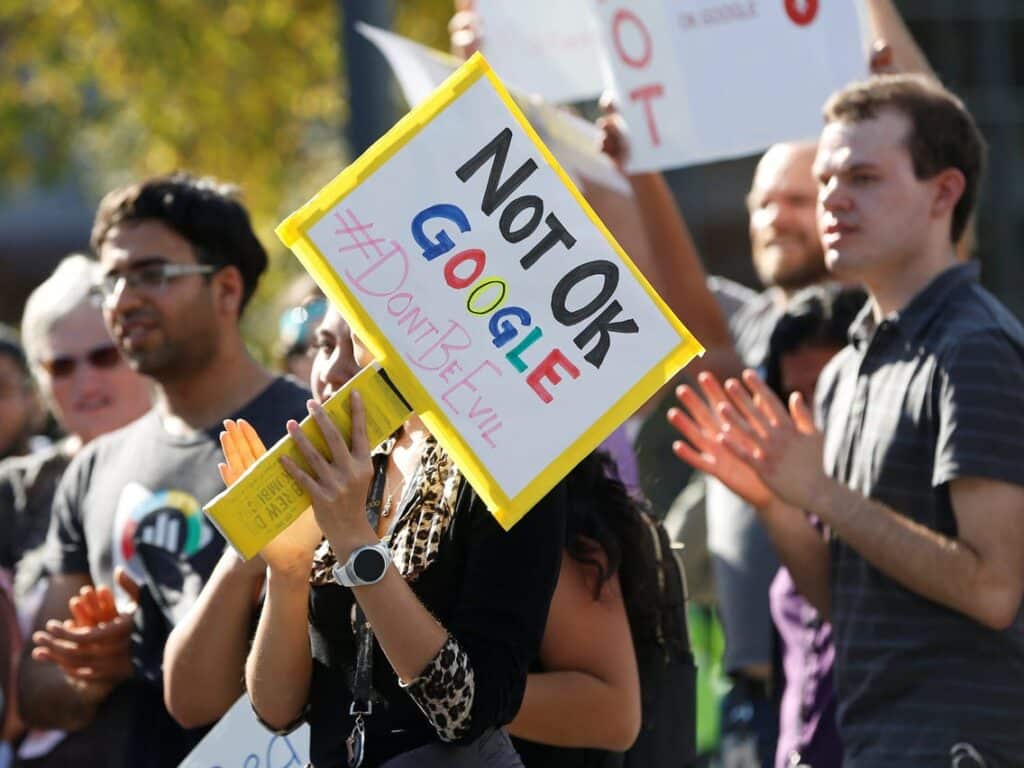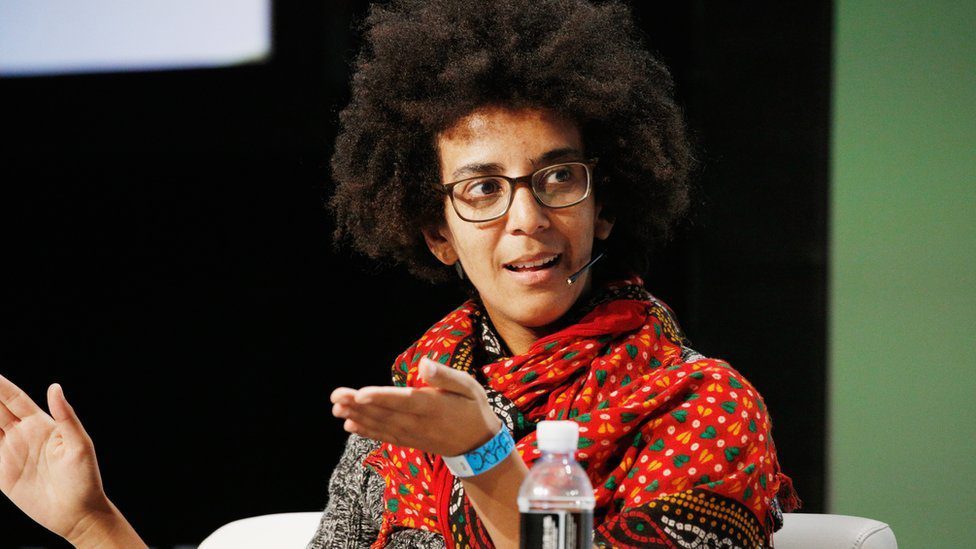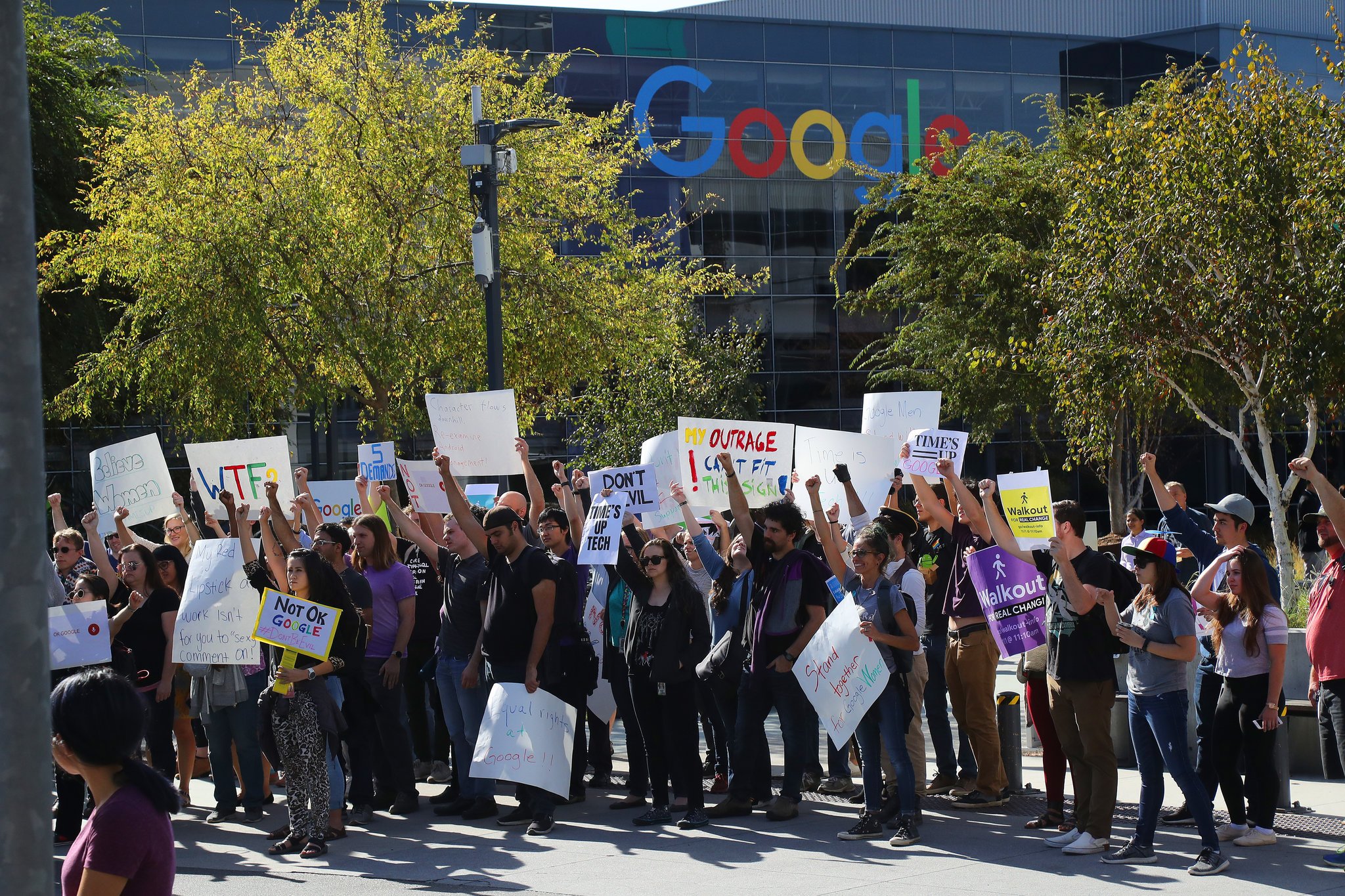Alphabet employees had long clashed with company executives pushing for changes, but the mobilization efforts were short-lived. Now, the Alphabet workers union (and therefore also Google) hopes to be able to create long-lasting effects.
The word "union" has the power to take us back to the last century, in a time of civil rights achieved at work and for work. Hearing “Google union” has a strange effect.
Only until recently were we all fascinated by the narrative of these "trendy" and unconventional workplaces. There was talk of flexible hours, of bizarre and fairy-tale benefits for workers, and the Silicon Valley it looked like a pristine island.
If you are looking for the lit log, scratch under the ashes.
It wasn't all gold. There was also some marketing. And as in all great workplaces, everyone's needs demand listening. This is why the news of a Google union (more: an Alphabet union, which is a bit like the mothership of all the companies born from Brin and Page) is epochal.
It shows that, like it or not, the future is built only around people. Maybe bypassing them (I hope not), but you can't avoid taking them into account.
“Our hope is that through a Google union, the structure and resources they will be able to provide us, and the skills they have acquired, we will be able to continue this fight for years to come,” he says Parul Koul, executive president of AWU and software engineer at Google.

The Google union, backed by Communications Workers of America, was announced on Monday after years of long-standing tensions between executives, employees and contractors of all ranks.

Google syndicate, the origins
In 2018, Google employees wrote a letter to the CEO Sundar Pichai calling for an end to a partnership between Google and the Pentagon. That same year, employees around the world staged a walk-out to protest the company's handling of executives accused of sexual misconduct, including a $90 million exit package for the former leader of Android Andy Ruben.
Protests also took place in 2019 in support of two employees under investigation on retaliation charges. Most recently, employees created a petition to support the artificial intelligence researcher Timnnit Gebru, who said she was fired over a dispute over a research paper.

“There are so many examples of workers coming together and mobilizing,” Koul says. “These mobilizations depend on these single and spontaneous moments. A Google union can sustain this energy for the long term. So far it's been really difficult: the strike, for example, made six very broad demands and only one of them has actually been realized so far."
A long way
As of today, the Google union has only a fraction of employee support, "just" 226 members as of yesterday, but it could grow rapidly.
In total, Alphabet has more than 130.000 employees worldwide.
The Google union will still be open to all employees and contractors, regardless of role or classification, with the intent of addressing issues such as pay and job transparency.
“The Google union wants to be a democratic and open organization,” Koul says. “An organization for all workers. And I hope that Alphabet executives will be able to make a good faith effort to listen to him.”
Already. What do the managers say? “We have always worked hard to create a supportive and rewarding work environment for our workforce,” he says Kara Silverstein, director of personnel operations at Alphabet.
“Of course our employees have the protected workers' rights that we uphold. But as we have always done, we will continue to engage directly with all our employees."
A "frontal" change that cannot be without general consequences. The Google union brings the bar back to the issue of work, evidently reducing a certain form of "versatility" and "verticality" in Big Tech companies.
Perhaps in the medium term it will also affect its development, but it is a question of profits, not of people.


